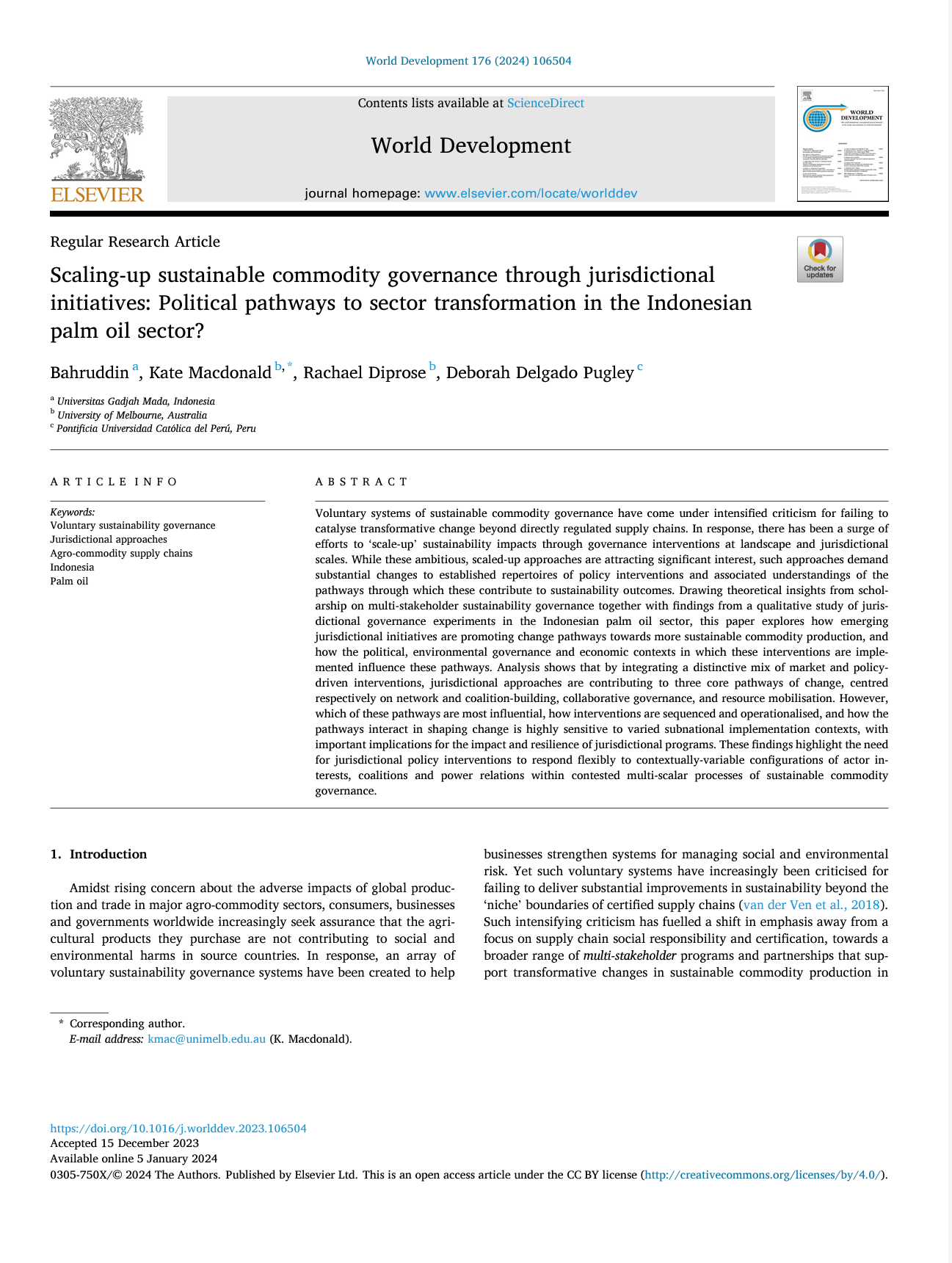Scaling-up Sustainable Commodity Governance Through Jurisdictional Initiatives: Political Pathways to Sector Transformation in the Indonesian Palm Oil Sector
Drawing theoretical insights from scholarship on multi-stakeholder sustainability governance together with findings from a qualitative study of jurisdictional governance experiments in the Indonesian palm oil sector, this paper explores how emerging jurisdictional initiatives are promoting change pathways towards more sustainable commodity production, and how the political, environmental governance and economic contexts in which these interventions are implemented influence these pathways.
The paper finds that by integrating a distinctive mix of market and policy-driven interventions, jurisdictional approaches are contributing to three core pathways of change, centred respectively on network and coalition-building, collaborative governance, and resource mobilisation. However, which of these pathways are most influential, how interventions are sequenced and operationalised, and how the pathways interact in shaping change is highly sensitive to varied subnational implementation contexts, with important implications for the impact and resilience of jurisdictional programs. These findings highlight the need for jurisdictional policy interventions to respond flexibly to contextually-variable configurations of actor interests, coalitions and power relations within contested multi-scalar processes of sustainable commodity governance.
